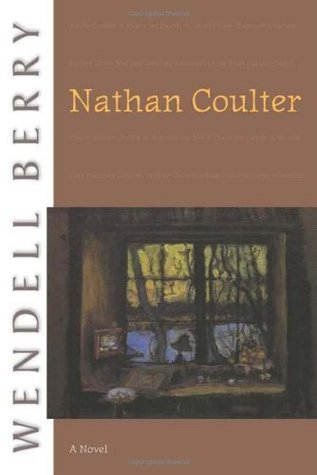More on this book
Community
Kindle Notes & Highlights
That was what he lived for, to own his farm without having to say please or thank you to a living soul.
Uncle Burley said hills always looked blue when you were far away from them. That was a pretty color for hills; the little houses and barns and fields looked so neat and quiet tucked against them. It made you want to be close to them. But he said that when you got close they were like the hills you’d left, and when you looked back your own hills were blue and you wanted to go back again. He said he reckoned a man could wear himself out going back and forth.
he just wandered around, looking at the mountains and rivers and oceans that the Lord had made. Since the Lord had gone to all the trouble of making them, he thought the least a man could do was go and look at them.
His hands never quit moving. Even when he went to sleep sometimes at night sitting in his rocking chair in the living room his hands stirred on the chair arms as if they could never find a place to rest.
“Uncle Burley,” I said, “do you think Mrs. Crandel was good enough to get to Heaven?” “Beats me. It’s hard to tell what happens after they get them planted.”
“Now ain’t that a pretty baby, Nathan?” It didn’t look like much to me. But I could tell that Uncle Burley thought a lot of it, so I said it was the prettiest baby I ever did see.
“Uncle Burley,” I said, “it’s a bad thing to be dead, ain’t it?”
“What’re you going to do?” I asked him. “It would be bad for a man to pass up a chance to make some money, wouldn’t it?” “I suppose it would,” I said.
“There’s one good thing about work,” he said. “What?” “Stopping.”
He’s worked like the world was on fire and nobody but him to put it out. It’s a shame to see him getting old.” I nodded. Grandpa had been hard on all of us. He’d kept himself stubborn and lonely, not allowing any of us to know him; we saw him and he saw us through his loneliness. But his loneliness and stubbornness humbled us too. We had to admire him.
Big Ellis giggled. “We heard you were dead, Burley.” “So did I,” Uncle Burley said. “But I knew it was a lie as soon as I heard it.”
We were the way we were; nothing could make us any different, and we suffered because of it. Things happened to us the way they did because we were ourselves. And if we’d been other people it wouldn’t have mattered. If we’d been Mushmouth or Jig Pendleton or that dog with the roman candle tied to his tail, it would have been the same; we’d have had to suffer whatever it was that they suffered because they were themselves. And there was nothing anybody could do but let it happen.
“Well,” Uncle Burley said, “they’ll grieve in this old land until you’d think they were going to live on it forever, then grieve some more because they know damn well they’re not going to live on it forever. And nothing’ll stop them but a six-foot hole.”


